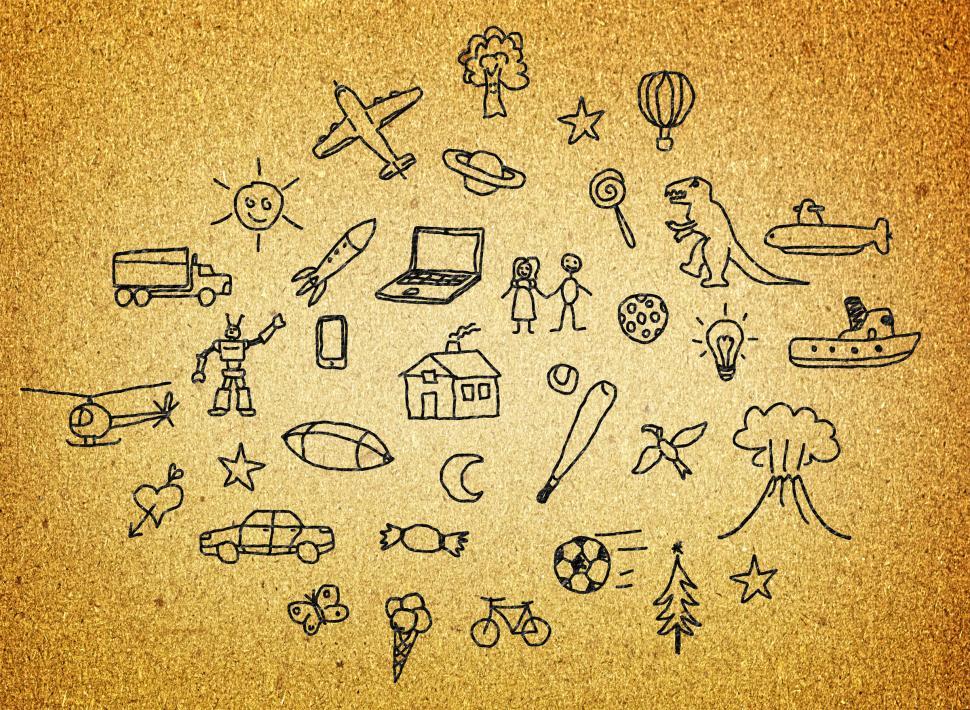If you followed this up in your head with ‘a song to sing’ you’re a proper 90s baby, if you did with Dr. Martin Luther King’s speech even more power to you, but let us not digress in our very first sentence already! Dreams! Dreaming is a big part of our existence as humans. We spend about a third of our entire lives on earth sleeping, and during this time a lot of dreaming happens. But what is a dream? Why does dreaming happen in the first place? Let’s attempt to find some answers.
What is a dream exactly?
Dreams are a series of hallucinations that often occur during a certain stage of sleep (there are different stages, which we can explore another time) called REM (Rapid Eye Movement) sleep. During REM sleep, which is the period when our brains are most active, our minds conjure up stories, images and a series of thoughts. This is literally the stuff dreams are made of. Dreams can seem very real, and they can elicit a lot of different emotions in us and impact our moods. They can be exciting or scary, they can make us angry, or extremely sad. They can also be fantastic, following absolutely no logic, or be perfectly rational. A lengthy, elaborate dream with imagery that evokes fear and anxiety is what we call a nightmare. Dreams are thought to typically last between 5 to 20 minutes. Some experts say we dream at least four to six times per night.
What happens when we dream?
In REM sleep, there is a loss of basically all muscle tone, except for the eye muscles obviously and the diaphragm for breathing. In this space, parts of the frontal cortex of our brains, i.e. where our logic and reasoning reside, go offline. With no logic, judgement or reasoning the normal rules of time and space do not apply anymore, which is why dreams can seem so absurd, and we can find ourselves walking one minute and flying the other, or find ourselves opening a door at home into a room at school.
The hypocampus of the brain, which is where memories are stored, is engaged in this stage of sleep. The amygdala, a key player in emotion, is also engaged. This is what allows us to involve actual events and people we know in our dreams, making them so real, and heightening our feelings of fear and grief when there’s danger or a death, or happiness when something good happens.
Why do we dream?
This is one of the unanswered questions of science. We do not know for sure what purpose dreaming serves in and of itself, and scientists are still looking for an explanation. There are many theories, however. One theory by subscribers to the views of psychologist Sigmund Freud posits dreams to be expressions of our unfulfilled wishes, mostly sexual, as is typical with Freudian theories. Another theory says that dreams are just random activities of the sleeping brain, a bit like shooting a paint-gun without aim, purpose or structure on a blank wall.
What is known, however, is that dreams have a relation to our health and general well-being. In one particular study, researchers analyzed two groups of people – one group was allowed to sleep and get into REM sleep stage, the other group was woken up just as the subjects were drifting off into REM sleep. The results showed those who were not allowed to dream experienced increased tension, anxiety, depression, difficulty concentrating, a lack of co-ordination, weight gain and a tendency to hallucinate.

Many experts believe dreams help us solve problems in our lives, increase our learning capacities, help us understand new experiences, incorporate memories, process emotions and deal with trauma. Rats, for example, have been shown to replay their waking experiences in dreams, and this is believed to help them solve tasks they may have found complex before, such as navigating a maze.
Why don’t some people dream?
There are people who say they never dream, and they genuinely believe so because they cannot recall ever dreaming. But with the exception of those who may have gone through a specific kind of brain injury, every human dreams. We just forget sometimes, some more than others. Remembering a dream is easier when you wake up right in the middle of one or immediately afterwards. Therefore light sleepers remember dreams more, because they tend to wake up frequently during REM sleep. Deep sleepers will find it much more difficult to recall dreams because by the time they wake, they will probably be far away from REM sleep.
Another contributing factor to whether we remember dreams or not is how we wake up. If we wake up naturally, without any external influence, we tend to remember our dreams better than if we were startled out of sleep by an annoying alarm, or worse – a parent, spouse or child.
Can you control your dreams?
It is possible for dreams to be directed in a way we would like for them to go. This is called lucid dreaming. Lucid dreaming describes the state where you know you’re dreaming, while you’re dreaming. Parts of the brain that are normally suppressed during sleep are activated. In this state, you are somewhere between REM sleep and being awake. Lucid dreaming has been used by therapists to treat mental health illnesses like depression, as well as effectively reduce nightmares and self-mutilation.
Pop Culture reference: Hip Hop artist Juice WRLD uses this concept in his hit 2018 single ‘Lucid Dreams,’ where he re-directs his thoughts on experiencing a broken heart and tries to place himself in charge of a situation that is obviously hurting him.
That’s about it on dreams, and why we have them. See if you can remember what your last dream was about, or when you have your next dream, write it down. You never know, this really could be your mind’s way of solving a problem you’ve been struggling with!
